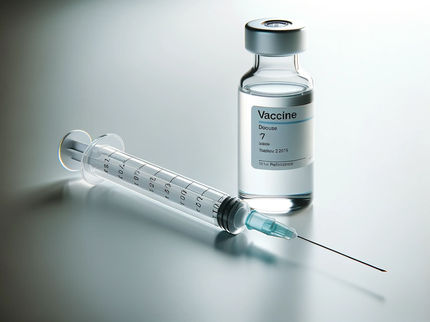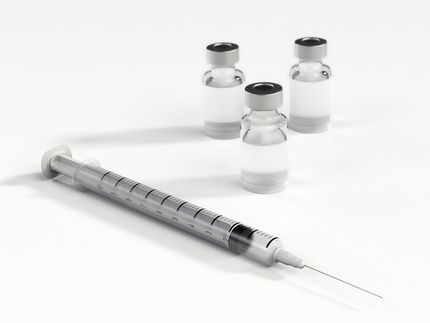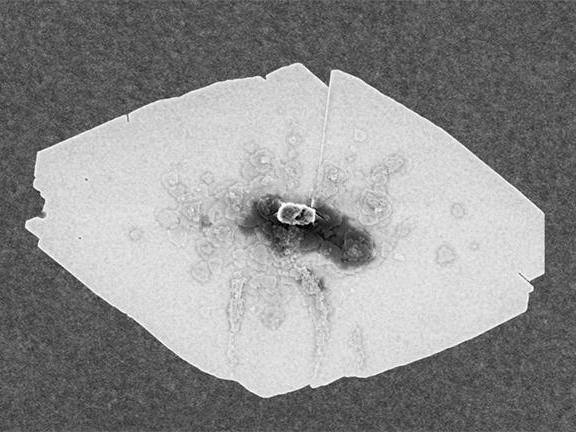Most would refuse emergency use H1N1 vaccine or additive
A majority of Americans would not take an H1N1 flu vaccine or drug additive authorized for emergency use by the food and Drug Administration, according to a University of Pittsburgh Graduate School of Public Health and University of Georgia study. The study, available in Biosecurity and Bioterrorism: Biodefense Strategy, Practice, and Science , found that fewer than 10 percent of those surveyed said they would be willing to take such a vaccine or drug and nearly 30 percent remained undecided.
The passage of the Project Bioshield Act in 2004 created the emergency use authorization (EUA) giving the FDA the ability to use experimental or "off label" drugs in the event of an actual or potential emergency. To date, four vaccines against H1N1 virus have been approved under the same process used by the FDA for the seasonal flu vaccine. Also, several drug additives, or adjuvants – sometimes added to vaccines to strengthen the immune response and stretch the quantity of available vaccines in the event of a pandemic – have been ordered and stockpiled by the federal government in case they may be needed. But adding them to H1N1 vaccines would trigger an EUA, which is one of the reasons the federal government has chosen not to use them.
"Although the U.S government has held off on including an adjuvant in H1N1 vaccines for now, American officials may need to reconsider this decision as the pandemic unfolds," said study author Sandra Quinn, Ph.D., associate dean for Student Affairs and Education and associate professor at the University of Pittsburgh Graduate School of Public Health. "There also remains a significant shortage of the vaccines in many countries around the world. Given this, our finding that few people would accept a new but not yet fully approved H1N1 vaccine or drug is very worrisome," she said.
The study was based on a survey that focused on attitudes toward H1N1 and willingness to accept flu vaccines and drugs not officially approved by the FDA, but authorized for emergency use. Of the 1,543 adults questioned in June 2009, 46 percent of people surveyed said they were concerned about getting swine flu. However, nearly 86 percent said they thought it was unlikely or very unlikely that they themselves would become ill.
Researchers also report that 63 percent of people surveyed said they would not be willing to take "a new, but not yet approved vaccine", and 50 percent said they would be very or extremely worried about taking it. Of those who reported they would be moderately to extremely worried, 70 percent said they would refuse the vaccine outright. Only 4 percent of the most worried said they would take the vaccine, compared to 23 percent of those who were not at all or slightly worried.
In addition, 65 percent of those who said they would refuse the vaccine reported being confident about their decision, compared to only 46 percent of those who said they would take the vaccine.
Race also was associated with refusal to take the vaccine – 66 percent of whites and 60 percent of blacks reported they would refuse the vaccine, compared to 47 percent of Hispanics. Blacks reported they were the most worried (62 percent), followed by Hispanics (52 percent) and whites (46 percent).
According to Dr. Quinn, these results differ from some current opinion polls on public acceptance of an H1N1 vaccine because the researchers explicitly asked about vaccines approved under the EUA designation.
"Communication about the H1N1 vaccine is enormously challenging," said Dr. Quinn. "The additional issue of emergency use designation would further complicate challenges to clear communication. In the event an emergency-use adjuvant is required to stem the H1N1 pandemic, public health professionals will need to articulate a strong case for the vaccine and aggressively address myths and misinformation to increase understanding and acceptance."
The potential challenge in communicating with the public about emergency use authorization is relevant beyond the question of the H1N1 vaccine, added Dr. Quinn. "EUAs are an important tool for the protection of the public's health in an emergency. It would behoove public health agencies to begin now to think about communication and education of the public on this issue."






















































